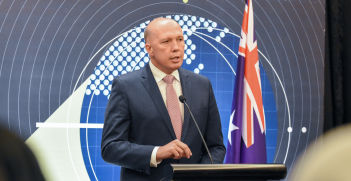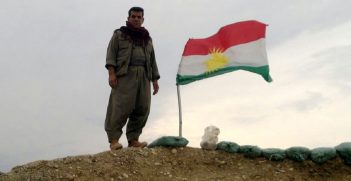Russia Seeks to Fortify Itself in the Middle East in The Absence of the US

The power vacuum left by the US in the Middle East has allowed Russia to gain a foothold in the region – and it is making the most of this opportunity.
Security and military developments in the region over the past few months , seem to have frustrated Riyadh’s leaders. Such developments include the weakening of in Syria, a missile attack on the Aramco oilfields, and the lack of support from the United States. The new realities of US foreign policy have disproved the notion that the US will defend its allies at important junctures and Moscow is now taking advantage of this opportunity. In fact, as the US’ regional influence declined Russia’s new Middle East policy began with the decline of Iranian influence in Syria and Russia’s own alliance with Turkey over recent military strikes on terrorist groups in northern Syria. The situation could not have been better for Russia. With the United States losing dominance the region through its sanctions against Iran, its occupation of Iraq, and its mistaken policy on Syria leading to a near-complete withdrawal earlier this year, Russia has seized this opportunity and gained a foothold for itself in the region.
Has Russia found a new role in the Middle East?
After five years, Saudi Arabia’s rulers welcomed Vladimir Putin .The king of Saudi Arabia had been waiting for the Russian president’s visit to Riyadh; it had been two years since the king had travelled to Moscow. During Vladimir Putin’s trip to Riyadh, the two countries agreed on billions of dollars in investment and trade deals, ranging from cultural issues to high-tech and space technology. According to the Saudi Oil Ministry, According to the Russian president’s spokesman Dmitry Peskov, the two sides have also discussed military and technical cooperation. There have already been reports of Russia’s desire to sell the Russian S-8 missile defence system to Saudi Arabia, but it appears that Saudi Arabia has finally opted to meet its US air and missile defence requirements.
Some experts in Russia believe that Putin’s presence in Saudi Arabia and the United Arab Emirates indicate that America’s role in the Middle East is diminishing. The Middle East has never been in a situation which many view as an “American exit.” They point to the US backing the Kurds in northern Syria against Turkey, as well as the failure of the US missile defence system to defend Saudi Arabia’s oil facilities. However, with the failure of serious agreements on the sale of the S-400 missile defence system, which is the flagship of Russian goods for sale to friendly countries such as Turkey, talk of Russia’s replacement of the US as the main friend of the UAE and Saudi Arabia seems exaggerated.
Putting it all together, Russia, a local power in the Middle East, is ready to fill the void caused by the slow and steady decline in US commitments and presence. The Persian Gulf is now the scene of Putin’s renewed power in the world’s richest and most turbulent waters. The US vacancy leaves a vacuum regarding the economic benefits and strategic importance of the region for global security. Putin has shown that he is trying to bring Russia back to its former power and influence. Therefore, the tumultuous area of the Persian Gulf is full of opportunities for him. Not surprisingly, over the past decade, the Middle East and its developments have been in the hands of the US and its European allies. US military presence and its broad coalition in the Persian Gulf had narrowed the scope for Russian activity. This was also the case given Washington’s strategic relationship with Arab kingdoms such as Saudi Arabia, Kuwait, Bahrain, and the United Arab Emirates. But now, Russia has a different foreign policy that is offensive and expansive. Putin’s trip to Saudi Arabia was apparently aimed at mediating between Iran and Saudi Arabia, but had the ulterior motive of playing an active role in the region and in the Arab world.
It may be said that the new Russia led by Putin is trying to get closer to some of the Arab states of the Persian Gulf which was once called America’s backyard. With its high hand in having good relations with powerful countries in the region, including Iran, Turkey, and Israel, Russia plays a mediating role in the Middle East to once again remind the West that Russia, as a superpower, has returned to the scene of global conflict. Without Moscow’s support, the world’s great problems cannot be solved.
Amin Bagheri is a member of the Iranian International Studies Association in Tehran. His research focuses on Iran and the Middle East.
This article is published under a Creative Commons Licence and may be republished with attribution.





